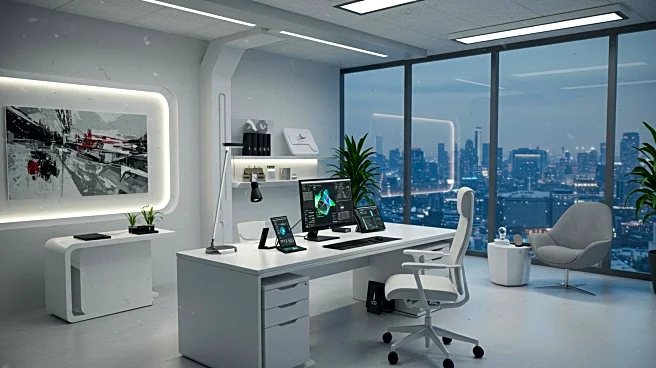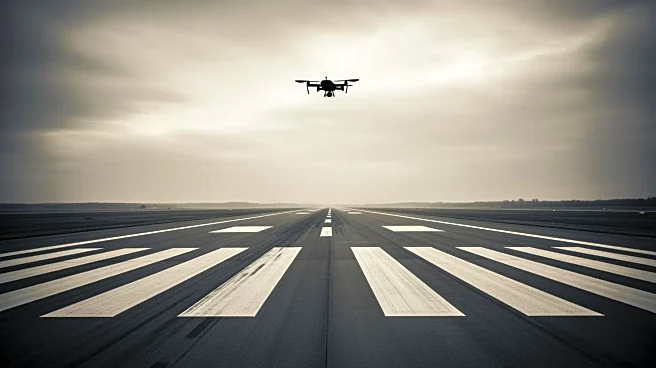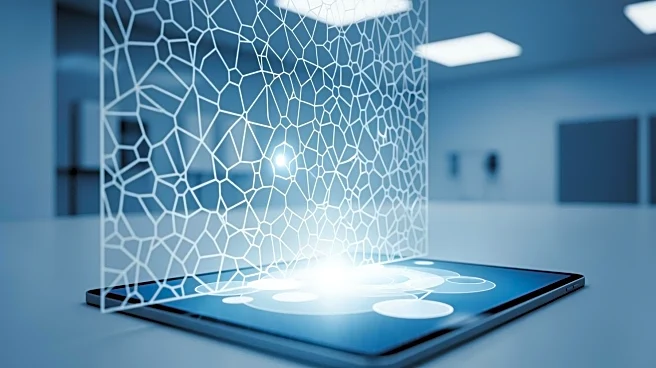What is the story about?
What's Happening?
Technology companies are adapting their office designs to accommodate the hybrid work model, which combines remote and on-site work. This shift is driven by the need to enhance recruitment, retention, and productivity. Companies are investing in flexible and ergonomic furniture that can transform throughout the day to meet the diverse needs of their workforce. Modular furniture systems, ergonomic seating, and technology-integrated workstations are becoming standard as companies strive to create environments that support both collaboration and individual work. Sustainability is also a key consideration, with recyclable materials and energy-efficient designs being prioritized.
Why It's Important?
The transformation in office design reflects broader changes in the workforce and workplace dynamics. As companies compete for talent, providing a comfortable and adaptable work environment becomes crucial. Ergonomic and flexible designs can reduce absenteeism and improve productivity, directly impacting business outcomes. The integration of technology into office furniture supports seamless hybrid meetings and efficient energy use, aligning with the digital nature of modern work. Additionally, sustainable design practices help companies meet compliance goals and attract environmentally conscious employees, enhancing their reputation and operational efficiency.
What's Next?
As the trend towards hybrid work continues, companies are likely to further innovate in office design, using data and employee feedback to refine their spaces. This ongoing adaptation will ensure that office environments remain relevant and supportive of evolving work practices. The growth of the ergonomic furniture market indicates a sustained focus on employee comfort and productivity, suggesting that companies will continue to prioritize these aspects in their strategic planning.
Beyond the Headlines
The shift in office design also highlights cultural changes in the workplace, where employee well-being and environmental responsibility are increasingly seen as integral to business success. This evolution may lead to long-term shifts in how companies approach workplace design, emphasizing human-centric and sustainable practices.















